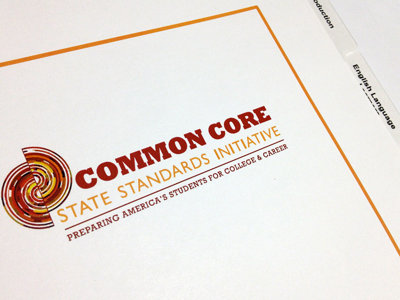Last week, Wisconsin Gov. Scott Walker finally got off the fence and called for the state’s lawmakers to “repeal Common Core and replace it with standards set by people in Wisconsin.” Clearly an attempt to motivate his base, Walker’s statement — like most anti-Common Core sentiments — missed the mark on what the real problems are and opened up an ugly can of worms.
I couldn’t help but smile to see that Alan Borsuk called this latest round “the silly season,” mostly because “silly” is far too kind a word for what Walker’s statement has unleashed. That’s up to and including the way Rep. Jeremy Thiesfeldt (R-Fond du Lac), who could possibly be leading the Assembly’s education committee in the next session, can’t even get the name of the Common Core State Standards right in his press release.
I’ll be clear up front: I think any attempt by this or any state to abandon CCSS is just dumb. I find most of the opposition to CCSS from conservatives, including elected officials, to be based on paranoia and outright myths, not helped by propagandist by right-wing news outlets.
I’ve written about CCSS before, and I’m not going to rehash all of it here, so I encourage you to go read that and come back. But for those of you who don’t want to bother, the short version is that I have some concerns about the kindergarten and early elementary standards being developmentally inappropriate, and I have concerns at the other end that there’s far more being expected of high school students than can reasonably be delivered in a school year. But the standards, on the whole, are unobjectionable and set appropriate expectations for what students should know and be able to do at each grade.
Where my big concern lies is testing. But America’s testing regime is not the fault of the Common Core State Standards, and far predates their adoption, even though no one but me seems to care about that fact. Indeed, this current round of anti-CCSS silliness seems directly precipitated by the Cedarburg School District’s resolution asking the state to delay implementation of the CCSS-aligned Smarter Balanced testing, which is supposed to start this coming school year. There are many reasons to delay, from pedagogy to technology, and if we hit the brakes for a year, I’d be okay with that.
Cedarburg did not, notice, call for a “repeal” of Common Core State Standards, and initial responses to the resolution, from people like Sen. Leah Vukmir (R-Wauwatosa), echoed the call only to delay the tests. Then Walker jumped in the next day demanding we repeal the standards themselves, not just delay the tests, starting this whole “silly season.”
America’s testing regime goes back — not unlike CCSS, and other reform efforts like charter schools and privatization and radical revamps of teacher prep programs — to the fraud perpetrated on America by Ronald Reagan’s education department known as A Nation at Risk.
That 1983 report assured us that the U.S. was on the verge of losing the global awesome contest to the Soviet Union because our children were not learning the way they used to. (Boy, those Soviets sure showed us!) It has convinced two generations of Americans that our schools are terrible, our teachers are imbeciles, and generally that the sky is falling.
Since then, what all students are expected to know and do has been steadily ratcheted upward. CCSS is an example — there are things in the high school math standards that even I didn’t learn in high school, and I took International Baccalaureate calculus. Another example of this is the way states have changed what students must minimally know in order to be described as proficient.
Wisconsin changed its definition of proficiency in 2012, and now our students score a lot lower on the exact same tests than they did just a couple of years ago. Do you really think that only a third of Wisconsin’s teenagers are proficient readers? That’s how it seems, anyway, if you look at the scores.
In 1998, the state of Wisconsin adopted the standards that preceded CCSS in this state. You can still find them online — here are math and English, for example — and you can compare them to Common Core to see what I mean. CCSS standards, in math especially, are far beyond what Wisconsin used to expect of its students. Those claiming that CCSS has “dumbed down” Wisconsin education clearly either don’t know what’s in CCSS or don’t know what CCSS replaced.
That was the claim in Indiana recently, that Common Core was not good enough for Hoosier children. So that state abandoned CCSS and released its own standards that are, well, mostly copied and pasted from the CCSS. Seriously! Read them and see! As even members of Walker’s party are telling him, you put smart people in a room and ask them what children should know to be college ready, and they’re pretty much going to come up with something like what is currently in the Common Core, and you’ll have just wasted everyone’s time and money.
But clearly, Walker thinks that riding the wave of conservative anti-CCSS paranoia will get him votes in November, and doesn’t care about wasting time and money. But isn’t that what we’ve come to expect from him by now?
Postscript: I’ve spent a lot of time over the past couple of years examining my stance on Common Core in terms of the No True Scotsman fallacy. I do that in part because as a liberal blogger throughout the aughts I marveled at how quickly “conservatives” branded George W. Bush as not a true conservative when Bush became toxic following Hurricane Katrina, exploding deficits, the debacle that was Iraq and more. And how, indeed, today’s conservatives have to cast back to Reagan — and not even the real Reagan, but an imaginary version — to find a true conservative icon. The joke among my set was “Conservatism cannot fail, it can only be failed.”
In other words, I wonder if I am suffering the same failure, thinking the Common Core cannot fail, it can only be failed. I worry that I can’t acknowledge the faults in the standards themselves and instead only blame others: the testing industry, stupid critics who haven’t read the standards, Bill Gates, even Reagan his own self for that matter. I don’t think so. Aside from my reservations noted above, I can’t put my finger on anything wrong or even really missing from the standards. But go ahead — prove me wrong in the comments.


 i evaluate to yes even if there's no image
i evaluate to yes even if there's no image  i evaluate to yes even if there's no image
i evaluate to yes even if there's no image  i evaluate to yes even if there's no image
i evaluate to yes even if there's no image  i evaluate to yes even if there's no image
i evaluate to yes even if there's no image  i evaluate to yes even if there's no image
i evaluate to yes even if there's no image  i evaluate to yes even if there's no image
i evaluate to yes even if there's no image